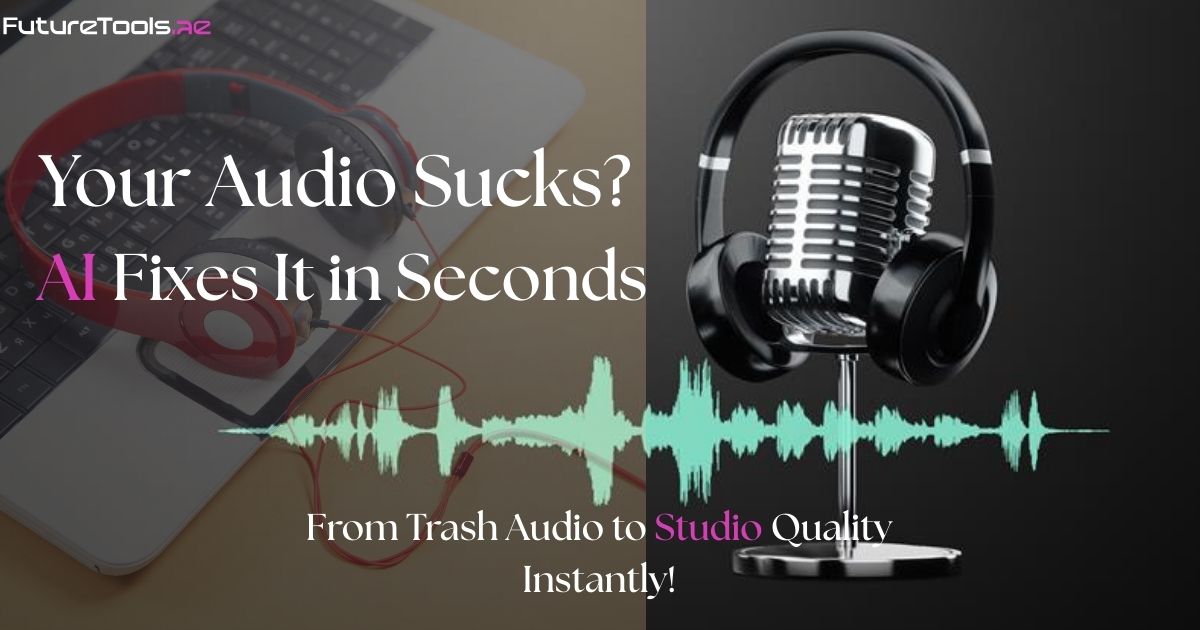Latest AI Tools, Trends & Trusted Reviews!

In today’s creator economy, audio quality can make or break your content. Whether it’s a podcast, a YouTube vlog, or a corporate keynote, crisp and clear sound defines professionalism. In the space of AI Tool Reviews, one category that’s growing fast is the online audio editing tools; AI-powered platforms that not only edit but also repair, enhance, and even generate voices.
This isn’t just about trimming audio tracks anymore; it’s about how AI speakers, AI keynote speakers, top AI speakers, and AI expert speakers are being reshaped by voice technology tools like Play.ht, ElevenLabs, Adobe Podcast, and Descript.
Traditional sound engineers once needed hours to repair noisy recordings, cut out filler words, or sync voice to video. Now, AI can:
For creators, this means faster production. For businesses, it opens the door to AI keynote speakers delivering presentations in multiple languages. And for professionals, it means the ability to scale voice content across geographies without losing authenticity.
When searching for the best AI tool for audio editing, look for platforms that combine user-friendly design with automation. Features like noise removal, smart mastering, and speech enhancement matter most. AI tools like Adobe Podcast and Descript are leading examples, letting users edit audio faster while maintaining professional quality.
Sometimes the problem isn’t editing—it’s fixing. Enter AI-driven audio repair tools that restore clipped, distorted, or poorly recorded voices. For example, Adobe Podcast offers a free, studio-level “Enhance Speech” feature that makes any recording sound like it was captured in a sound booth.

These tools are essential for vloggers, journalists, and companies that record content outside of perfect studio environments.
For high-end studios, an audio interface for Pro Tools is still non-negotiable because it ensures low latency, crystal-clear capture, and reliable processing. However, in contrast, many cloud-first tools now simulate the sound quality of a professional interface. As a result, even creators outside of traditional studios can achieve impressive audio without expensive gear. In addition, for casual creators, online audio editing tools completely eliminate the need for heavy hardware setups, making the production process faster, lighter, and more accessible.
Pro Tools audio editing remains the gold standard for music, TV, and film. But professionals are increasingly combining AI-powered quick edits with Pro Tools’ precision mixing. The hybrid model is efficient: AI handles repairs, and Pro Tools polishes the final master.
Vloggers face unique challenges: background chatter, outdoor noise, and the need to publish fast. The best vlog audio editing tools now come with:

Tools like Descript shine here because they merge video and audio editing and allowing creators to cut filler words and silence gaps directly from transcripts.
Now let’s look at the AI voice platforms redefining how we think of top AI speakers and AI expert speakers:




With these tools, AI keynote speakers can deliver speeches in multiple languages. AI expert speakers can be cloned for corporate training or online learning. And for conferences, top AI speakers can even “attend” virtually, powered by AI-generated speech.
This is no longer science fiction, global brands already use AI to scale their leaders’ voices across markets.
At FutureTools, we track these shifts daily. From online audio editing tools to AI speakers that can headline virtual events, the line between editing and generating is blurring fast.
The takeaway? Whether you’re editing a podcast, cleaning up a vlog, or deploying an AI keynote speaker, the best strategy is therefore to pair human creativity with AI efficiency. Tools like Play.ht, ElevenLabs, Adobe Podcast, and Descript are not just utilities, they’re shaping the future of voice, content, and communication.
And that’s exactly what we at FutureTools specialize in: giving decision-makers the insights they need to stay ahead in the fast-moving world of AI.
